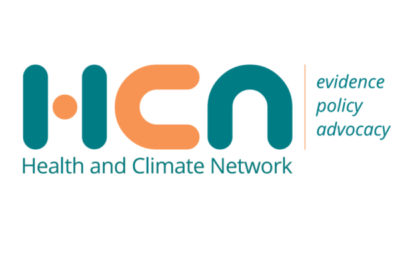The climate crisis is also a health crisis, with profound and irreversible consequences not only for the environment, but for people’s health. The Health and Climate Network (HCN), of which the Brazilian Institute for Consumer Protection (Idec) is part, has produced a set of solutions to these global crises, which are interconnected and share many of the same causes and responses.
There are four position-papers that explore, based on scientific evidence, paths to healthier and more climate-resilient food, health, transport, and energy systems, meaning that suffer and cause less impact to climate change. The recommendations will be presented at the UN Climate Change Conference (COP26), which takes place between 31 October and 12 November in Glasgow, Scotland.
“We will show evidence on the connections between climate and human health, with clear solutions that governments around the world must jointly adopt to mitigate the climate and health crisis, including non-communicable diseases that cause more than 70% of global deaths” states Ana Paula Bortoletto, nutritionist at Idec’s Healthy and Sustainable Food Program.
Food and climate change
Today’s food systems, including the production, processing, transport, marketing and consumption of food, are leading to poor diets, impacting people’s health and harming the environment and the global economy – a situation that has been further aggravated by the pandemic of covid-19.
On November 2, as part of the COP26 agenda, Idec will participate in the event “Global food 2050: How can we deliver the climate resilient, sustainable and healthy diets of the future?” to collectively propose and build solutions for this scenario.
Food systems currently produce between 20 and 35% of the world’s greenhouse gas emissions. In parallel, unhealthy eating is impacting all countries and is now the leading cause of non-communicable diseases such as obesity, heart attack, stroke and diabetes worldwide. The HCN study estimates that malnutrition and obesity can cost society up to $3.5 trillion a year.
“Transforming food systems so that they do not worsen the climate crisis will promote healthier eating and significantly reduce premature deaths worldwide, as recommended by the Latin American and Caribbean Nutrition and Health Community of Practice (Colansa), of which Idec it is part, in a manifest about the urgency of healthy and sustainable Food Systems”, points out Ana Paula.
Access the briefing Diet and food systems for health, climate and planet.
Energy for the future
The burning of fossil fuels (oil, gas and coal) in energy production is the main cause of climate change and one of the world’s greatest health risks.
The energy sector is the largest source of greenhouse gas emissions, accounting for nearly three-quarters of global emissions. Combustion of fossil fuels is by far the biggest source of unhealthy air pollution, causing about a quarter of adult deaths from stroke and heart disease, one third from lung cancer and two fifths from chronic obstructive pulmonary disease.
For HCN, it is necessary to provide carbon-free renewable energy to all who need it in order to dramatically improve the climate, human health and the economy.
Access the briefing Energy systems that protect climate and health.
Rethinking the transport sector
While playing a key role in society, today’s transport systems contribute to air pollution, road traffic injuries and deaths, physical inactivity and socioeconomic exclusion.
The sector is responsible for 24% of direct carbon dioxide (CO2) emissions from fossil fuel use, while road vehicles are responsible for nearly three-quarters of CO2 emissions from transport.
Remodeling mobility with a focus on people and health will dramatically reduce these risks, while increasing access to convenient and affordable transport and protecting the climate.
Access the briefing Transport systems that protect climate and health.
More health, please
Global warming has a range of health impacts around the world, including malnutrition, infectious diseases, heat stress, direct trauma and mental illness. As if the picture were not already challenging, to address covid-19 pandemic, health systems became even more overloaded.
The healthcare sector is responsible for 4.4% of global greenhouse gas emissions. The vast majority of them come from the combustion of fossil fuels and from high-income countries. If global health were a country, it would be the fifth biggest climate polluter on the planet.
Sustainable and resilient health systems are needed to provide care and responsiveness when and where needed in unstable environments, without further harming the environment.
Access the briefing Sustainable and climate resilient health systems.
About the Health and Climate Network
The Health and Climate Network is an alliance of organisations, including Wellcome, working to put positive health outcomes at the centre of responses to the climate crisis. The Network advocates for evidence-based policy solutions that save lives and improve global health.
Access the documents
● Diet and food systems for health, climate and planet.
● Energy systems that protect climate and health.

)


